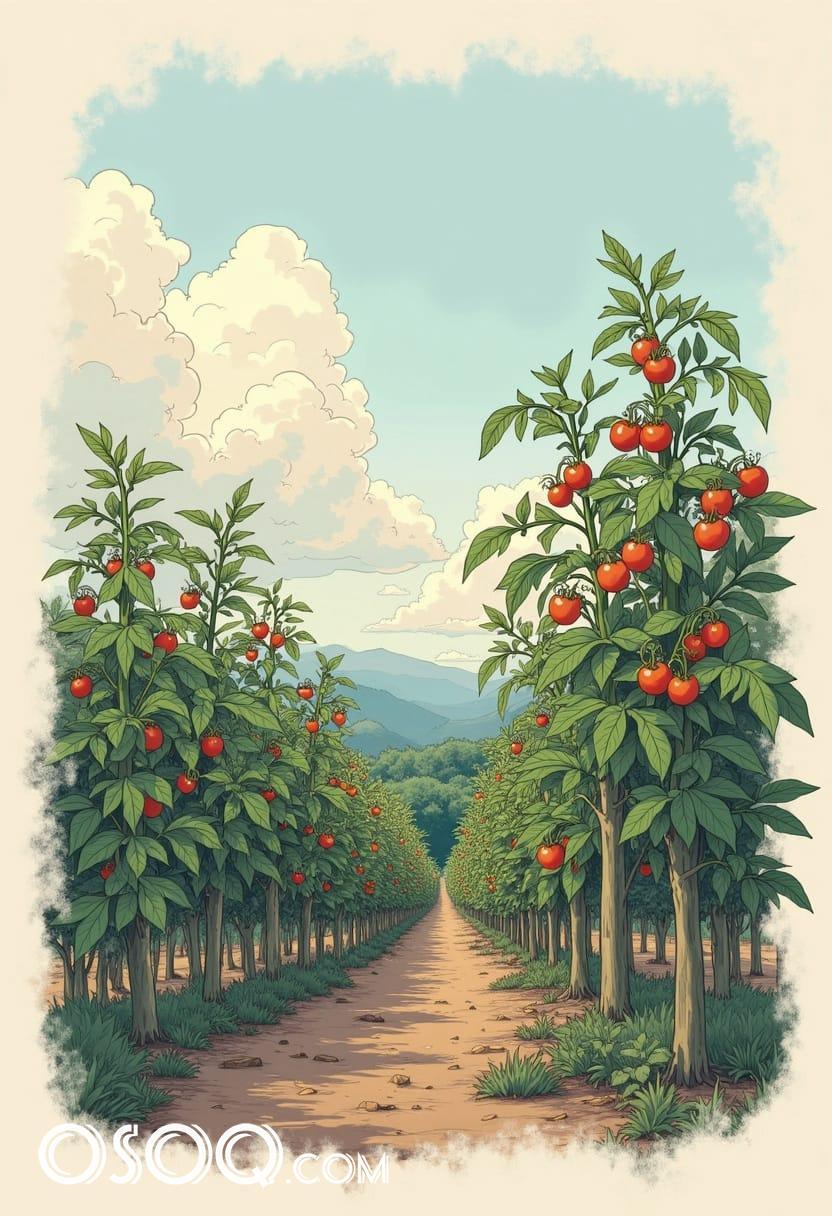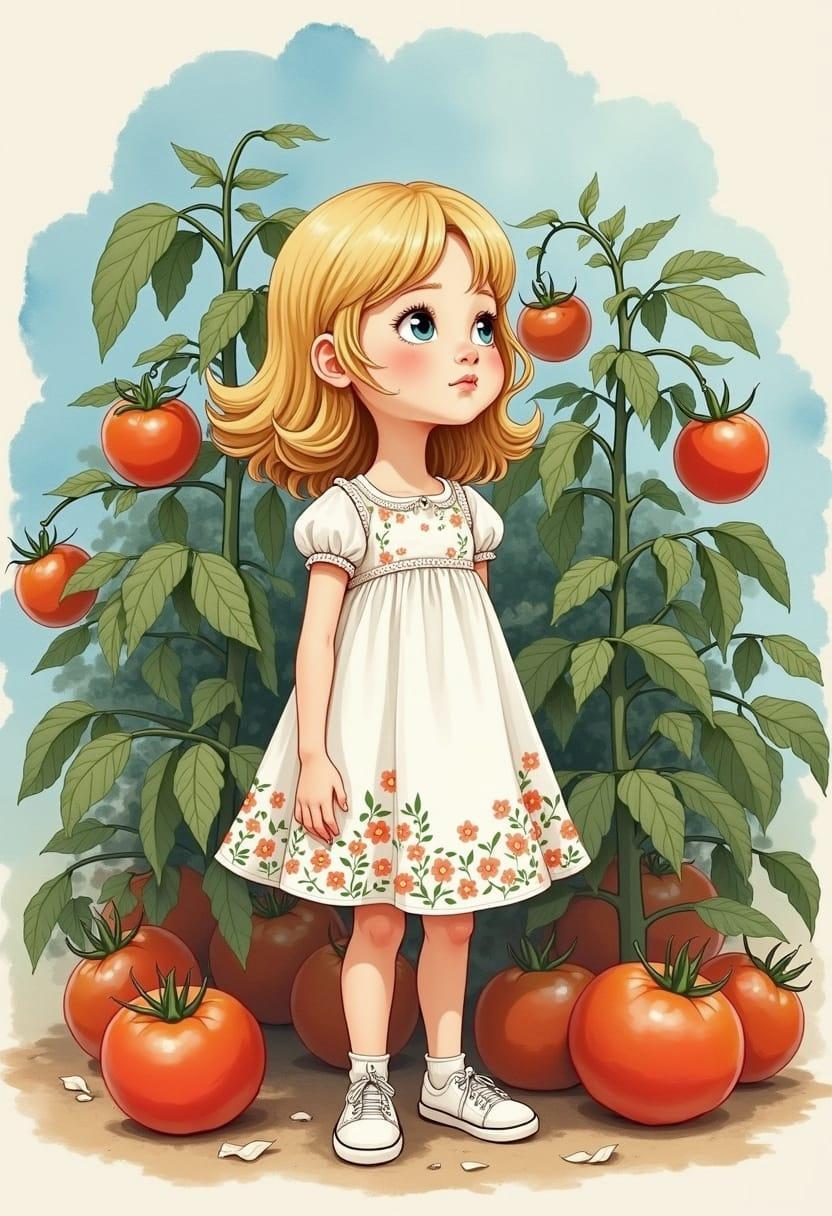Pictures of black cherry tomatoes
- Caricature /
- Tomato picture /
- Pictures of black cherry tomatoes

Black cherry tomatoes get their dark color from anthocyanins, the same antioxidant found in blueberries. These tomatoes were bred to have a unique look and taste—some describe the flavor as smoky or wine-like. If you look closely at pictures of black cherry tomatoes, you’ll notice they often have a glossy, almost purple-brown hue.

They’re not genetically modified—black cherry tomatoes are the result of traditional crossbreeding techniques. Because of their unusual appearance, they’re popular in gourmet salads and upscale farmers' markets. Pictures of black cherry tomatoes are often used in seed catalogs to attract adventurous gardeners.

Black cherry tomatoes grow on indeterminate vines, meaning they keep producing all season long. In blind taste tests, many people prefer black cherry tomatoes over red ones for their rich, complex flavor. Some gardeners report that birds are less attracted to black cherry tomatoes, possibly due to the darker color.

They’re packed with lycopene, a powerful antioxidant believed to help fight free radicals in the body. Black cherry tomatoes are often used in tomato jams for their naturally sweet, bold taste. Pictures of black cherry tomatoes frequently show them in rustic wooden bowls, highlighting their earthy aesthetic.

The first known black cherry tomato variety was released in the early 2000s by tomato breeder Vincent Sapp. They’re great for kids’ gardens because they’re easy to grow and fun to harvest. Many chefs say they pair especially well with balsamic vinegar and fresh mozzarella.

Pictures of black cherry tomatoes on the vine often reveal how abundant and clustered the fruit can be. Some gardeners plant them specifically to create a dramatic contrast with bright yellow or red varieties. These tomatoes are usually ready to harvest about 65 days after planting.

In cooking, they hold their shape better than many other cherry varieties when roasted. Because they’re so juicy, they’re excellent for fresh salsa and bruschetta. The deeper color usually means higher levels of phytonutrients compared to lighter tomatoes.

Black cherry tomatoes thrive in containers, making them perfect for urban gardening. Pictures of black cherry tomatoes are frequently shared on social media by home gardeners showing off their crops. They’re considered “heirloom-like” even though they’re relatively modern, due to their unique traits and natural breeding.

Their skin is slightly thicker than other cherry tomatoes, helping them resist splitting in wet weather. They are especially popular in cooler climates because they don’t require extreme heat to ripen. Many seed companies offer them as part of “rainbow tomato” mixes.

They often grow sweeter with less watering, which concentrates the sugars in the fruit. Black cherry tomatoes have even been used in scientific studies about anthocyanin-rich diets. Pictures of black cherry tomatoes can be mesmerizing due to the mix of deep red, purple, and brown tones.

Some growers swear the taste improves after a few days of post-harvest ripening on the counter. They’re open-pollinated, meaning you can save seeds and expect the same plant next year. Their high antioxidant content makes them a favorite among health-conscious foodies.

Unlike some novelty varieties, black cherry tomatoes are productive and reliable. The plants can reach over six feet tall if given proper support. They make a beautiful addition to skewers and kabobs at summer barbecues.

Pictures of black cherry tomatoes often include them alongside fresh herbs like basil or thyme. They can be dehydrated and stored for use in soups or sauces later in the year. Their flavor deepens when roasted, bringing out hints of plum or dark chocolate.

Because of their intense flavor, they’re often used in tomato-based cocktails. In folklore, dark fruits were once thought to have magical properties—black cherry tomatoes carry that mystique. If you leave them on the vine too long, they can wrinkle slightly but still taste fantastic.

Many gardeners say black cherry tomatoes are among the first varieties to be eaten fresh off the plant. They’re a fun choice for taste-testing events or school science projects. They grow well next to basil, which helps deter pests naturally.

Their color develops fully only in full sun—partial shade can lead to a more muted red. They’re less acidic than many red varieties, making them gentler on sensitive stomachs. Pictures of black cherry tomatoes in recipes often highlight their dramatic color against white plates.

In cooler climates, covering them with a clear plastic dome can help start the season early. They’re part of the Solanum lycopersicum species, like all true tomatoes. Kids often love them because they’re small enough to eat like candy.

They can be sliced in half and frozen, retaining flavor for soups and stews. Because of their low water content, they’re ideal for reducing into thick sauces. Many community gardens grow black cherry tomatoes for educational and decorative purposes.

Some chefs use them in desserts, pairing them with dark chocolate or figs. Pictures of black cherry tomatoes are commonly used in food blogs to create a moody or rustic tone. The plants are heavy producers and will keep fruiting until the first frost.

They’re often gifted among gardening friends because of their uniqueness and reliability. You can train the vines up trellises or cages to save space in smaller gardens. Black cherry tomatoes continue to gain popularity among both amateur and professional growers.
